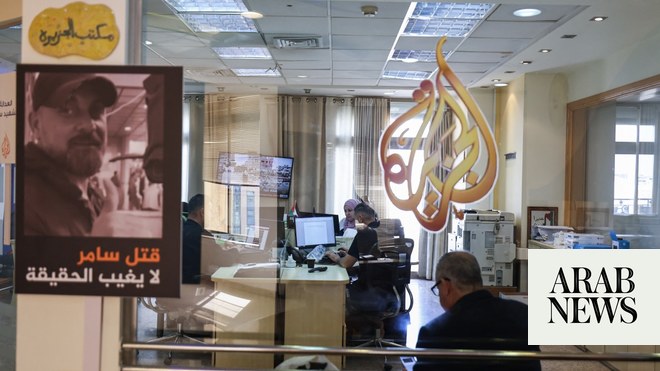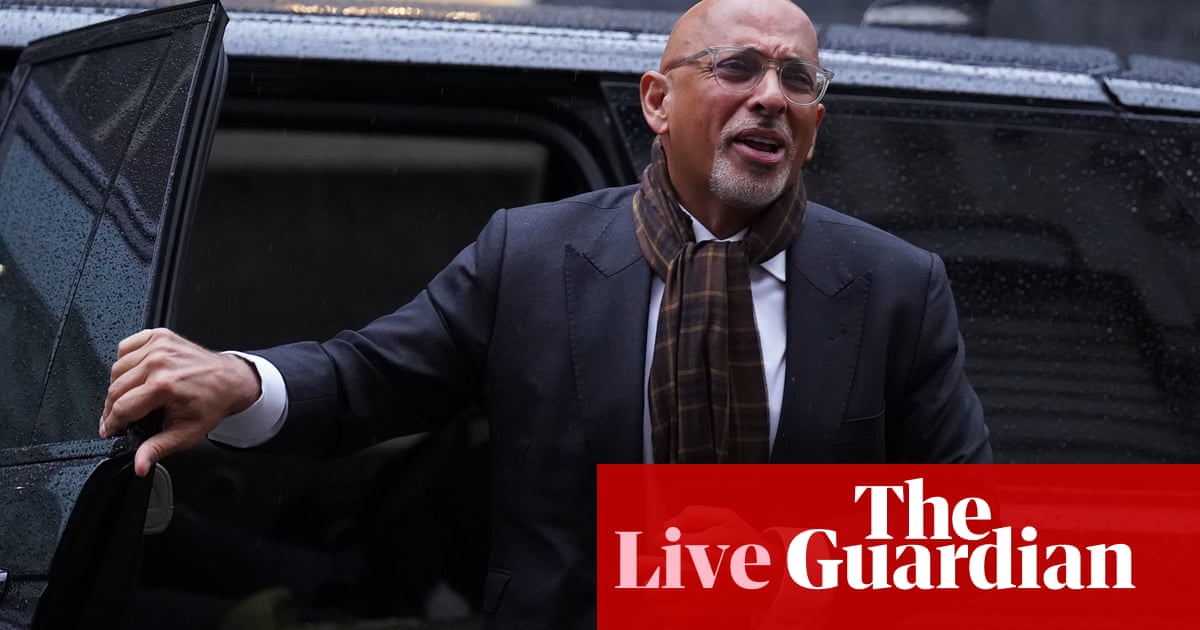
Swinney says all Scots earning more than £43,662 will pay 1% more in income tax, to raise money for NHS
Swinney says the starter, basic and intermediate rates of income will stay the same.
But the higher and top rate will go up, he says. (See 2.58pm.)
He says this means people earning more than £43,662 pounds will have to pay an extra penny in the pound on income tax.
He says the money is being raised for a specific purpose – investment in NHS.
These changes will raise £129m in the next financial year, he says.
Afternoon summary
Rishi Sunak is facing mounting pressure in the dispute over the nurses’ strikes, with a senior Tory MP telling him to compromise and increase the pay rise on offer while a health minister insisted unions’ demands could not be met. There is more detail on our separate live blog about the nurses’ strike.
John Swinney, Scotland’s first minister, has told MSPs in his budget speech that anyone earning more than £43,662 in Scotland will pay an extra penny in the pound in income tax. He said that cash would go into the NHS, and he presented it as an example of how the Scottish government was making progressive choices and rejecting austerity. His full statement is here.
Rishi Sunak is to visit Northern Ireland later on Thursday to meet politicians as efforts to break the impasse over the Brexit trade arrangements and get the Democratic Unionist party back to Stormont are stepped up.
Scottish Tories claims tax rises for higher earners risk undermining "potential for economic growth"
Liz Smith, the Scottish Conservatives’ finance spokesperson, is responding to Swinney now.
She says Swinney should stop blaming all his economic problems on the UK government. She says the increase in the block grant to Scotland more or less covered inflation.
She says the SNP government has had the power to vary income tax rates for a long time, and for years it never used them.
And she expresses concern about the tax gap that will open up between higher earners in Scotland and people on lower salaries. She told Swinney he risked “undermining the potential for economic growth”. And she asked if the Scottish government had conducted an analysis of whether this might lead to higher earners leaving Scotland.
In response, John Swinney, the Scottish government’s finance secretary, said that a few weeks ago Smith was urging him to follow the policies in Liz Truss’s disastrous mini-budget.
Swinney says he will freeze the basic rate for businesses paying non-domestic rates.
He says an extra £1bn will be allocated for health and socal care.
And he says the Scottish government will spend the £20m that would have been spent on an independence referendum, if the supreme court had not ruled that as illegal, on extending its fuel insecurity fund.
He ends by saying the Scottish government has opted “to reject the path of austerity” and instead chosen “a progressive path” with investment in public services.
Swinney also says there will be no limit on the council tax increases that local authorities can implement next year.
The SNP government froze council tax for many years – it was one of its most popular policies – but that ended last year.
Chris Green from the i says this could lead to big council tax increases.
In his autumn statement Jeremy Hunt, the chancellor, also paved the way for council tax bills in England to go up, although increases will still be capped at 5%, for authorities with social care responsibilities, and 3% for others.
Swinney says he is allocating an extra £550m for councils next year.
Swinney confirms that the additional dwelling supplement will go up from 4% to 6%. (See 3.12pm.)
Swinney says all Scots earning more than £43,662 will pay 1% more in income tax, to raise money for NHS
Swinney says the starter, basic and intermediate rates of income will stay the same.
But the higher and top rate will go up, he says. (See 2.58pm.)
He says this means people earning more than £43,662 pounds will have to pay an extra penny in the pound on income tax.
He says the money is being raised for a specific purpose – investment in NHS.
These changes will raise £129m in the next financial year, he says.
Swinney confirms that the budget will ask people on higher incomes to pay more.
But overall people in Scotland will pay less in income tax than in the rest of the UK, he says.
Swinney says the Scottish government has already raised the value of the Scottish child payments. And other benefits under the control of the Scottish government will go up in line with inflation.
But, Swinney says, the government is still choosing to focus on its priorities. Those include addressing child poverty, and transitioning to net zero.
The budget will strengthen the social contract with the people of Scotland, he says.
And he says people in Scotland still benefit from things not available in the rest of the UK, like free prescriptions, free university tuition and the Scottish child payment.
Swinney says Scottish government has had to revise its plan in light of poor economic situation
Swinney says one result of the financial situation is that it will take the government longer than planned to deliver on its agenda.
Another is the need for public sector demand will be more intense.
A third consequence is that capital spending won’t be as high as planned.
And, fourth, he is not publishing a public sector pay policy for 2023-24, because the situation is uncertain.
Swinney says the UK is set to perform worse than any other G20 economy in 2023 and 2024, other than Russia.
This shows how decisions made by the UK government have have “made our economy weaker and put the public finances under tremendous strain”, he says.
Swinney says he has allocated £700m more than planned for public sector pay.
And he says the financial pressures are so great that he is struggling to produce a budget that will balance.
And he says he does not think he will be able to carry over any money from this year’s budget into next year’s, as he normally does. That will make the situation even more difficult next year, he says.
Swinney is now delivering the budget statement.
There is a live feed here.
He starts by saying Brexit, and the “utterly catastrophic decisions” in the mini-budget have made the economic situation worse.
Scotland"s finance secretary apologises "unreservedly" for leak of budget
John Swinney, the Scottish government’s finance secretary, says no one was given authorisation by him to leak budget details.
But he says, inevitably, many people were aware of what the budget was going to say.
He tells Johnstone:
I unreservedly apologise to you for the situation in which you find yourself a presiding officer in protecting the integrity of parliament.
He also says some of the information leaked was contained embargoed information given to the other political parties.
Alison Johnstone, Holyrood’s presiding officer, has told MSPs she “cannot express strongly enough” her disappointment about the leak of the budget.
But she said she would allow the statement to go ahead.
Chris Musson from the Scottish Sun has more on the leak of the Scottish government’s budget.
The Scottish parliament is set to resume its sitting any minute now, the Herald’s Tom Gordon reports.












